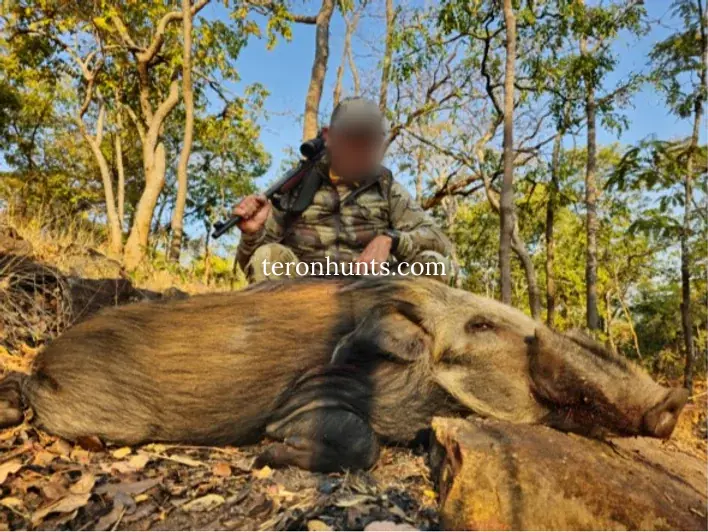Home » Hunting Destinations » Hunting in Mozambique
Hunting in mozambique 🇲🇿
Quick Navigation
How to book a hunt?
Send Us An Inquiry
Get Tailored Offers & Confirm With Deposit
Your Hunt Is Locked In – We’ll Handle The Rest
From permits to logistics, we’ll make sure everything’s arranged. You just focus on the hunt—our team is here if you need anything along the way.
Choose Your Next Mozambique Trophy
Part of "BIG FIVE"
Cape Buffalo
One of Africa’s most iconic Big Five. Hunting the Cape Buffalo in Mozambique demands courage, marksmanship, and respect. It’s an intense, adrenaline-filled experience.
Hippo
Part of "BIG FIVE"
Leopard
Part of "BIG FIVE"
Lion
Spotted Hyena
Roosevelt’s Sable Antelope
Livingstone’s Eland
Lichtenstein’s Hartebeest
Niassa Wildebeest
Southern Greater Kudu
Common Waterbuck
Bhoem’s Zebra
Crocodile
Yellow Baboon
Porcupine
Chobe Bushbuck
Part of "TINY TEN"
Sharpes Grysbuck
Common Nyala
Part of "TINY TEN"
Oribi
Part of "BIG FIVE"
Elephant
Common Reedbuck
Johnson's Impala
Warthog
Bushpig
Part of "TINY TEN"
Gray Duiker
A small, shy antelope that bolts at the slightest noise. Duikers require a quiet approach and sharp shooting, often taken as part of a Tiny Ten pursuit.
Part of "TINY TEN"
Blue Duiker
Part of "TINY TEN"
Red Duiker
Part of "TINY TEN"
Livingstone’s Suni
*All animals are FREE RANGE. No high fence and no animals have been imported into the area.
It is as natural and wild as one can expect to find in Africa today.
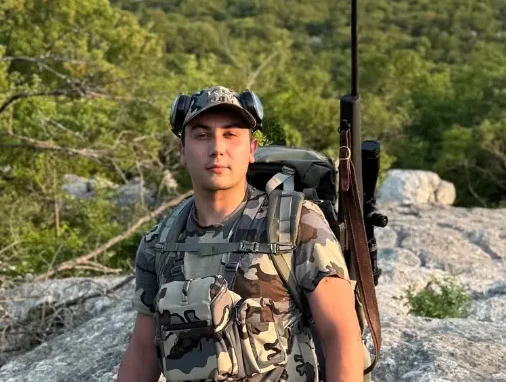
Hey, I’m Toni!
I’m here to help you with any questions or potential challenges you might have. Just reach out to me on WhatsApp, and I’ll get back to you as soon as I see your message.
1-on-1 Advice | Free Service | 100% Non-Binding
Where Will You Stay?
Our safari camps are designed for both comfort and authenticity, with 6 different camps, each comfortably hosting 4–6 guests at a time. You’ll stay in clean, well-maintained accommodations with hot showers, daily laundry service, and everything you need to relax after a day in the bush.
Trophy Fees
-
Elephant
$25,000 -
Lion
$25,000 -
Leopard
$10,000 -
Hippo
$6,000 -
Crocodile
$5,500 -
Buffalo (1st)
$5,000 -
Buffalo (2nd)
$8,000 -
Wildebeest (Niassa)
$5,000 -
Sable (Roosevelt)
$5,000 -
Eland (Livingstone)
$3,500 -
Nyala (Common)
$3,500 -
Kudu (Southern Greater)
$3,500 -
Hartebeest (Lichtenstein)
$3,200 -
Zebra (Bhoem’s)
$3,200 -
Waterbuck (Common)
$3,000 -
Hyena (Spotted)
$2,500 -
Oribi
$1,750 -
Grysbok (Sharpes)
$1,750 -
Livingstone Suni
$1,750 -
Duiker (Blue)
$1,750 -
Duiker (Red)
$1,750 -
Duiker (Grey)
$650 -
Bushbuck (Chobe)
$1,400 -
Reedbuck (Common)
$1,100 -
Impala (Johnsons)
$750 -
Porcupine
$750 -
BushPig
$750 -
Warthog
$750 -
Baboon (Yellow)
$450
Included
- Meet and greet
- Camp accommodation
- All meals
- Laundry service
- Local soft and alcoholic beverages
- Services of professional hunters
- Service of 4 X 4 vehicle
- Sales Tax
- Skinners, trackers and camp staff
- Field preparation of trophies
NOT Included
- Observer fee: $350 per person per day
- Agents/Translators: $100 per day
- Professional cameraman: $350 per day (including editing)
- Transporting of Trophies for Export: $300 (per client)
- Niassa Community Development Tax: $100 per hunting client per day
- Gun Import permit: $250 per firearm
- Hunters license: $350 per hunter/per concession or multiple area license $600
- Pre baiting for cats: $350 per day
- Usage of satellite telephone
- Gratuities
- Medical, evacuation, trophy and personal insurance.
Trophy Fees
Booking & Cancellation Policy
Deposit is 50%. No hunt is considered booked until the deposit is paid.
All safaris have to be booked for at least
6 months in advance.
In the event of
cancellation within 6 months of the safari
date, the client will forfeit his deposit.
If
the hunt is cancelled between 6-12 months
of the safari date his deposit will be held for
a safari at a later date at the new rates if
applicable.
If the client cancels the safari more than 12
months from the safari date, he will be fully
refunded all deposits.
Top Rated
Service 2025
Trusted & Secure
Hunt with peace of mind. No hidden traps—just transparent, safe adventures.
Easy & Hassle-Free
Forget endless planning and uncertainty. With just a few clicks, you’re booked and ready to go. Quick, clear, and built for a smooth hunting experience.
Hunts For Every Budget
From affordable to high end. We offer hunting experiences for all budget sizes.
Mozambique On World Map
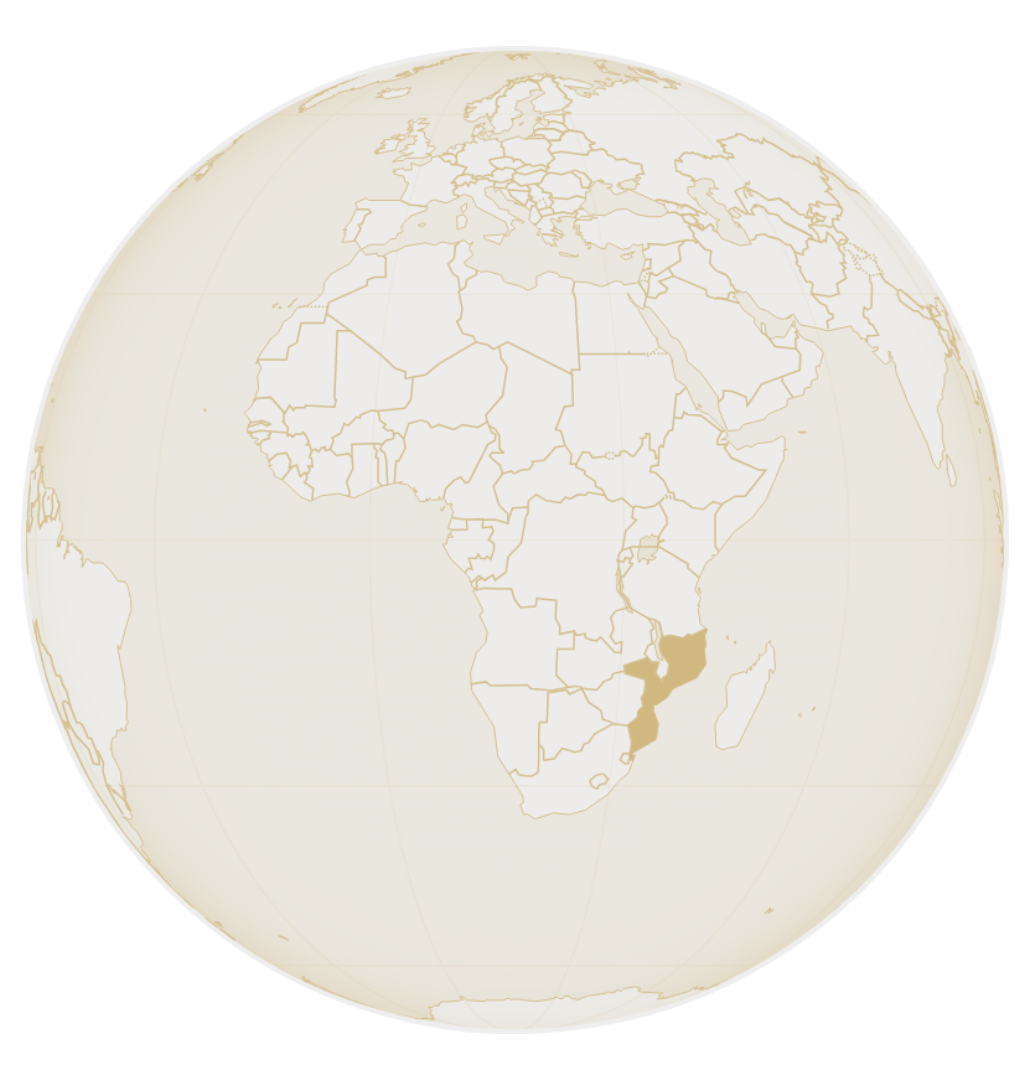
Your Ride Through Mozambique
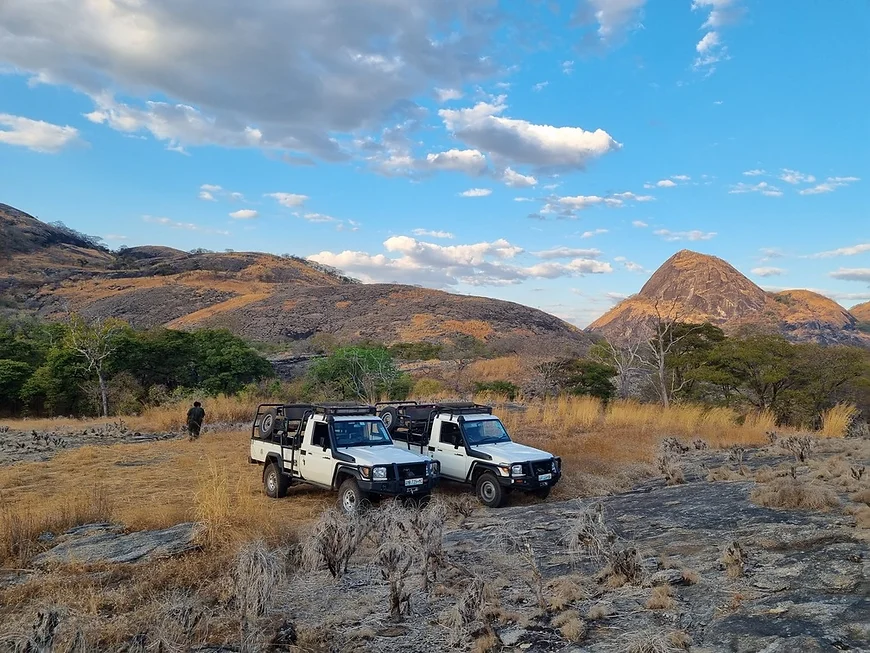
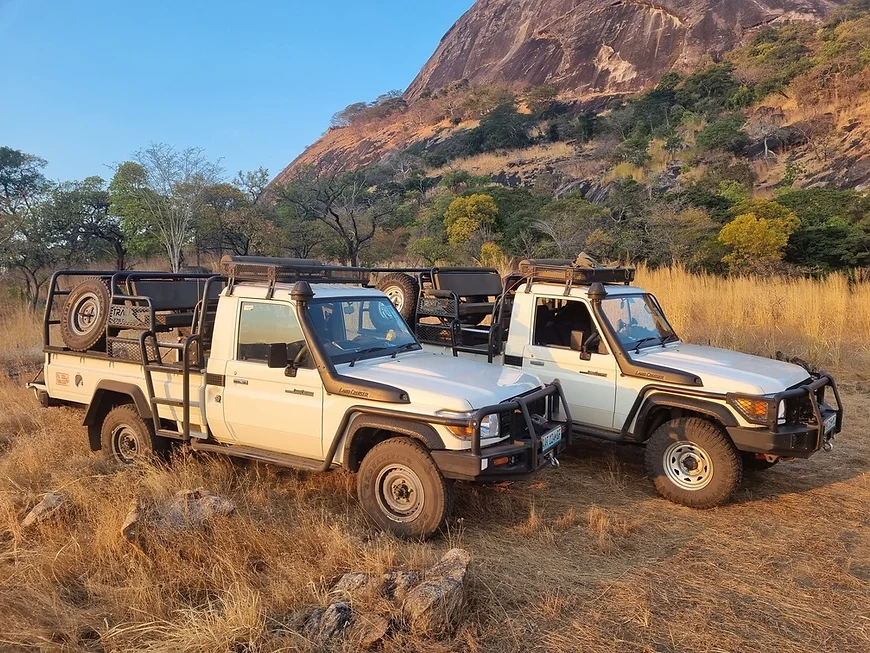
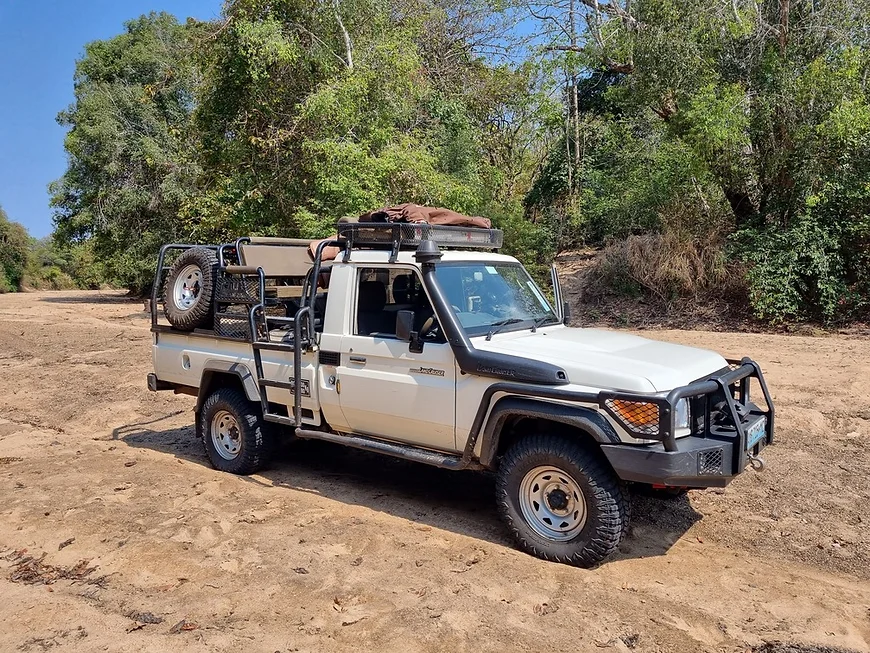
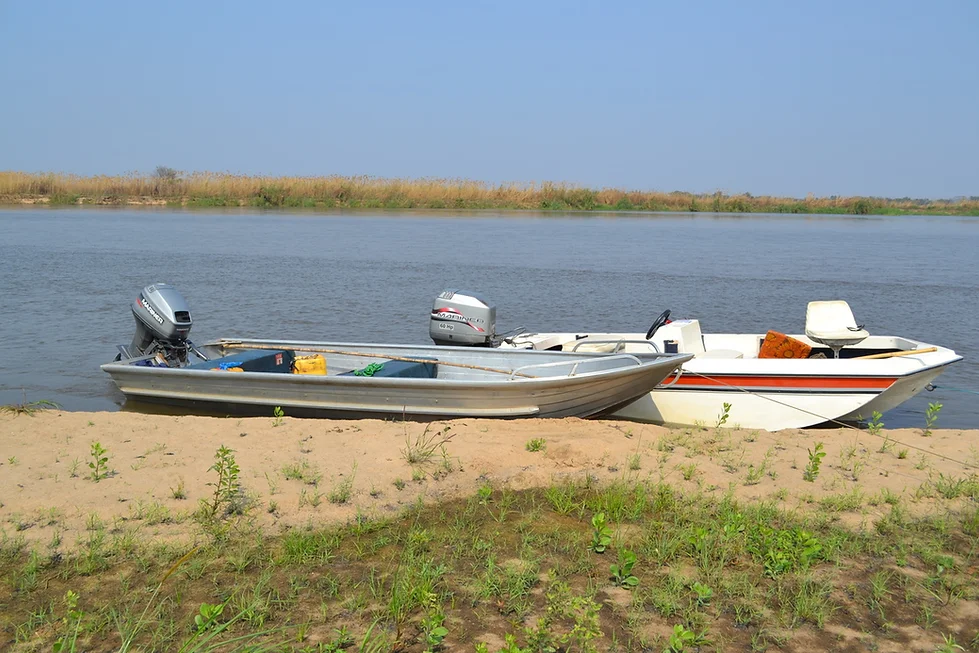
By submitting this form, you agree to our Terms & Conditions and Privacy Policy.
Hunt In Mozambique With Teron
Do I need a visa to travel to Mozambique for a hunting trip?
Yes, hunters visiting Mozambique must ensure their passport is valid for at least six months beyond their planned departure date. Most nationalities require a visa, with the exception of citizens from South Africa, Zambia, Botswana, and Eswatini. While visas are generally available at most border crossings for a fee ranging from $35 to $80 (depending on your nationality), it is highly recommended to secure your visa in advance through the nearest Mozambican Embassy.
If you have any questions or need assistance with travel arrangements, feel free to contact Toni at [email protected].
When is the hunting season in Mozambique?
Is malaria a risk in Mozambique?
Yes, Mozambique is considered a malaria-risk area, and it’s important to take appropriate health precautions before your trip. It’s strongly recommended to consult your doctor about preventative medication—many travelers use Malarone, but your doctor will advise what’s best for you based on your medical history.
What documents are needed to apply for a firearm permit in Mozambique?
We help our clients with the Mozambique firearm permit process. To ensure everything is in order, please send us the required documents at least 12 weeks before your safari begins. You’ll need to provide:
- A color copy of your passport
- A recent passport-sized photo in JPEG format
- A firearm license from your country (or US Customs Form 4457 if you’re from the United States)
- Your flight itinerary
- A completed Client Information Sheet and signed Indemnity Form
Let us know if you need help gathering these—we’re here to assist every step of the way.
What are the firearm and ammunition regulations for hunting in Mozambique?
Hunters may bring up to three firearms into Mozambique, with a limit of 100 rounds per firearm. Airlines typically restrict ammunition to 11 lbs (5 kg) total. Automatic, semi-automatic, and military-style weapons are not permitted.
For dangerous game, a minimum calibre of .375 is recommended, along with 20 soft-point and 20 solid rounds. For plains game, a calibre in the .300 range with 40–60 rounds is ideal.
Bowhunting is legal throughout the hunting season, and all game species may be hunted with a bow. If you prefer not to travel with your own rifle, camp rifles and ammunition are available to rent for an additional fee.
What are the hunting laws and regulations in Mozambique?
The official hunting season in Mozambique runs from 1 April to 30 November. Hunters are only permitted to hunt species for which they have a valid permit issued in their name. At Teron Hunts, we take care of all permit applications well ahead of your safari dates.
Since all hunting is subject to quota availability, it’s crucial to inform us of the specific species you wish to hunt well in advance. Permits must be obtained prior to the start of the hunt.
Hunting is strictly allowed during daylight hours, typically from half an hour before sunrise to half an hour after sunset. Exceptions to this rule are rare. The minimum number of days for a safari depends on the species being hunted: for example, Leopard requires a 15-day minimum, Cape Buffalo requires 12 days, and Lion requires 18 days.
It is illegal to hunt pregnant females, females with dependent young, or immature animals. If a female is accidentally shot, you will be charged the same fee as for a male, but the trophy will not be eligible for export.
To ensure a traditional and ethical hunting experience, Teron Hunts requires that all hunting be done on foot, after reaching the hunting area by vehicle. Hunters must be at least 200 yards away from an animal when shooting from the ground. However, crocodiles may be hunted from a boat.
Each hunter must have their own Model A hunting license, and we will assist in obtaining all the necessary permits for you.
Additionally, Problem Animal Control (PAC) hunts are not allowed, and hunting of species such as klipspringer, caracal, jackals, civet, serval, honey badger, and roan antelope is prohibited in Mozambique.
How to deal with jetlag during your Mozambique hunt?
Jetlag can be particularly challenging when traveling east, which means hunters flying in from the US may feel it more than those coming from Europe. The symptoms, such as fatigue, headaches, muscle soreness, and digestive issues, can really take away from your safari experience with Teron Hunts if you don’t take steps to manage them.
Here are some strategies to help you handle jetlag before and during your trip:
- Adjust your sleep schedule in advance: Gradually shift your sleeping hours to match the time zone of your destination a few days before departure.
- Synchronize your meals: Start eating according to the local time of your destination to help your body acclimate.
- Sleep when it’s night at your destination: If you arrive at night, try to rest on the plane. However, avoid napping if it’s daytime at your destination.
- Hydrate well: Drink plenty of water to stay hydrated during your flight. Limit alcohol and caffeine intake, as they can contribute to dehydration.
- Resist the urge to nap upon arrival: As tempting as it may be to nap after you land, try to stay awake and adjust to the local time by getting some sunlight and sticking to the new schedule.
- Arrive a day or two early: If you know jetlag tends to hit you hard, consider arriving a few days before your safari to give your body a chance to adjust to the new time zone.
Taking these steps will help you overcome jetlag faster, allowing you to fully enjoy your safari experience with Teron Hunts.
How to prepare for a buffalo hunt in Mozambique?
Proper preparation is key to having both a successful and enjoyable buffalo hunt in Mozambique. Here are some essential steps to get ready for your hunt:
Shooting Practice
A successful buffalo hunt begins long before you arrive in the field. It starts at the shooting range. Practicing with your firearm before your safari will improve your chances of making the perfect shot when the time comes.
Practice with Shooting Sticks
We highly recommend getting a set of shooting sticks (a standing-height tripod shooting rest) to practice shooting from this position. Most shots in Mozambique and Africa are taken in this manner. Practicing standing with your rifle, then quickly and smoothly placing it on the rest, will help you react swiftly when a buffalo presents itself. This seemingly small detail can make a huge difference when you have limited time to take your shot.
Off-Hand Shooting
It’s also important to practice shooting off-hand from distances of 10-50 yards. This is essential for follow-up shots, or when a buffalo is close enough that setting up shooting sticks would take too long.
Rapid Reloading
Practice reloading your rifle as quickly as possible. Being able to chamber a second or third round quickly means you’re more likely to get another shot in should your first miss or should the buffalo charge. Make sure you’re comfortable with reloading your magazine promptly before approaching your buffalo.
Studying Shot Placement
Cape Buffalo are tough and notoriously difficult to bring down. Familiarize yourself with the vital areas of the buffalo’s body and where to aim for the most effective shot. We recommend using The Perfect Shot and The Perfect Shot 2 by Dr. Kevin Robertson (https://www.amazon.com/Perfect-Shot-II-Complete-Placement/dp/1571574301) as excellent resources on shot placement. If you have any questions or concerns about shot placement, our team will gladly offer advice and guidance.
Exercise and Physical Training
Good physical condition is crucial to a successful and enjoyable buffalo hunt. Hunting buffalo requires long, demanding walks. The wet, muddy, and thick grass areas of Mozambique can make tracking and walking difficult, even on flat ground.
Build Your Stamina
Tracking buffalo often requires walking 2-10 miles (3-16 km) per day, depending on various factors. We recommend starting a walking routine well before your hunt, wearing the same clothes and boots you will use on safari. This will help you build endurance and prepare you for the demanding conditions of the hunt.
The earlier you start training, the more prepared you’ll be for your dream buffalo hunt in Mozambique.
Can my Mozambique hunting trip be documented on video and/or photographed?
Yes, your hunting safari in Mozambique can absolutely be documented. If you’d like professional-quality footage, we offer the services of an experienced cameraman at a rate of $350 per day, which includes filming, photography, and full editing of your safari highlights.
Let us know in advance if you’d like this service added to your hunt, so we can arrange everything before your arrival.
Can my observer/guest go with me during my hunt in Mozambique?
Yes, observers or non-hunting guests are welcome to accompany you on your safari in Mozambique. The observer fee is $350 per person per day, which includes their accommodation, meals, and participation in daily activities alongside you during the hunt.
It’s a great way for family or friends to share in the experience—even if they’re not hunting themselves.
Should I have insurance for my hunting trip to Mozambique?
Yes, having insurance is highly recommended, especially if you plan to hunt dangerous animals. Hunting liability insurance covers accidents and injuries. If needed, we can arrange insurance for you, or you can obtain coverage through our partner, Global Rescue, at this link: https://partner.globalrescue.com/bookandhunt/index.html.
Are translators available for my Mozambique hunting trip?
Yes, translators are available upon request for your hunting safari in Mozambique. The fee for a translator or agent is $100 per day. This ensures clear communication throughout your experience, especially if you’re not fluent in English or Portuguese.
How is my trophy taken care of?
Your trophies will be field prepared in camp and then transported to our trusted dip and pack agent, Life Form Taxidermy. They handle the entire export process, preparing your trophies for shipment to your nominated taxidermist or directly to your specified destination.
Life Form is highly experienced and up-to-date with all export regulations, including US Fish and Wildlife Service requirements, ensuring your trophies are handled professionally and in full compliance.
Dip and pack fees are quoted separately. For current pricing, please contact us directly.
Can I export an elephant trophy from Mozambique?
Elephant trophies from Mozambique currently cannot be exported to the US or the EU.
They can only be exported to Mexico, Canada, South America, and Russia at this stage.
Always check for the latest regulations before your trip, as international wildlife import laws can change.
Can I rent a weapon for my Mozambique hunting trip?
Yes, weapon rental is available at $30 per weapon per day, and ammunition is charged at $15 per round.
Please note: These charges apply for the entire duration of the safari, not just the days the weapon is used.
What gear should I pack for my hunting trip in Mozambique?
We recommend packing dark green, dull green, or dark khaki clothing made of cotton or similar breathable fabrics. Camouflage (like mossy oak) is allowed, as long as it’s not military-style camo.
Daily laundry service is available, so there’s no need to overpack. Here’s a suggested packing list:
Clothing:
3 pairs long trousers
3 pairs shorts
3 long-sleeved shirts
3 short-sleeved shirts
1 hunting jacket (for cool mornings)
1 warm sweater (for evenings)
Lightweight rain gear or coverall
2 pairs of light hunting shoes or boots (canvas or leather, not waterproof)
1 pair of tennis shoes or slippers for camp
1 wide-brimmed hat
1 set of light sleepwear
6 pairs of socks
Underwear
Medical and Personal Items:
Any personal medication prescribed by your doctor
Headache tablets
Diarrhea tablets
Bandaids
Antibiotics
Insect repellent (high DEET recommended)
Talcum powder
Eye drops
Itch relief stick or spray
Avon Skin So Soft (excellent for Tsetse flies)
Sunscreen (high SPF)
Lip balm with sun protection
Our camps are well-stocked with first aid kits, but it’s always wise to bring your essentials.





